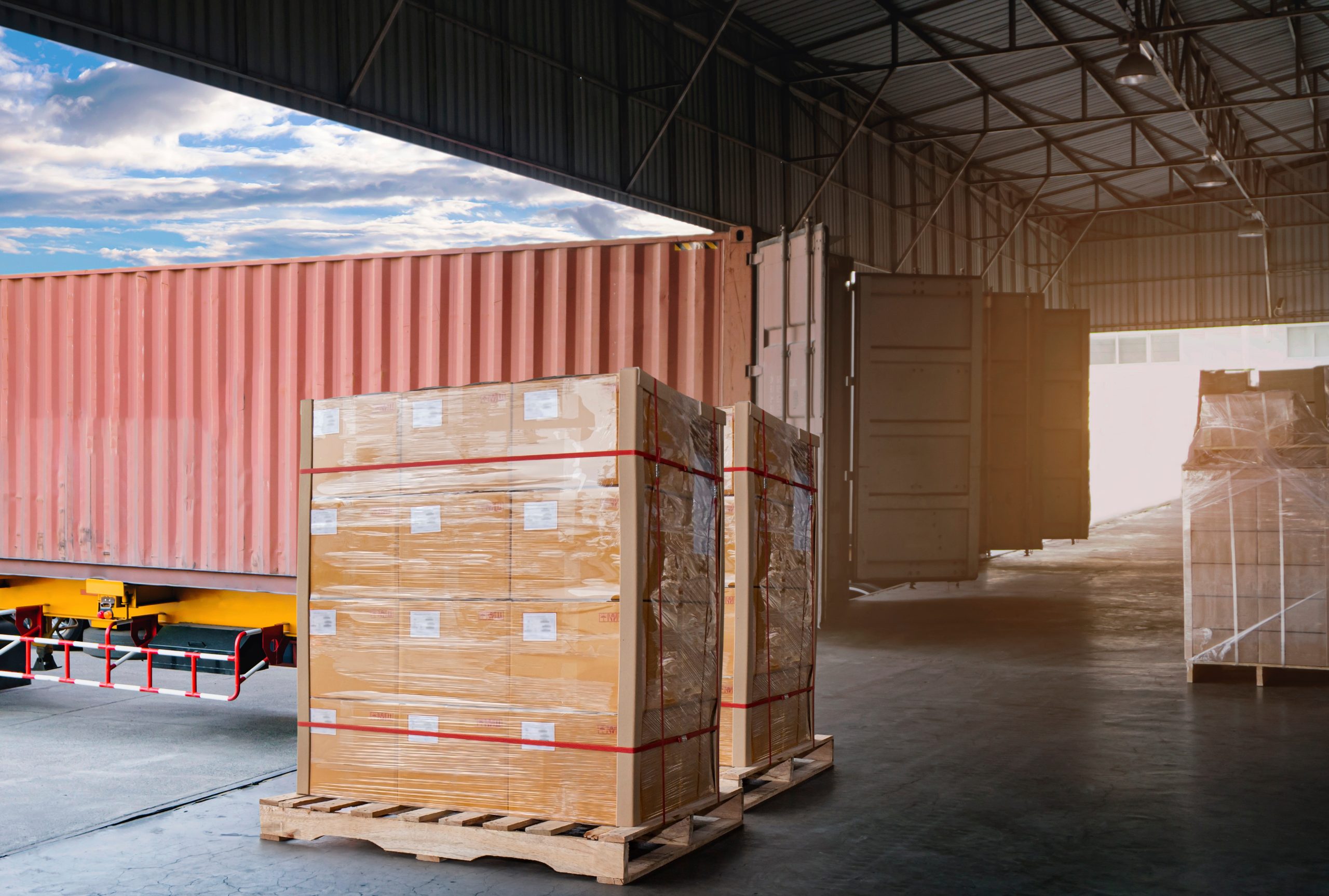Shipping to Nigeria: What You Need To Know Before You Send Anything
Shipping to Nigeria: What You Need To Know Before You Send Anything
Shipping to Nigeria can be a daunting prospect, especially considering the unique customs and regulations of the region. With the right preparation and knowledge, however, sending items to Nigeria need not be a stressful endeavor. From understanding the laws and regulations to choosing the right shipping company, there are a few important steps to take before you send anything to Nigeria. By familiarizing yourself with these steps, you can ensure that your shipment reaches its destination with minimal hassle. Additionally, you should also consider the type of items you are sending, as some items may not be allowed into the country. By educating yourself on the shipping process and taking the necessary precautions, you can ensure a successful shipment to Nigeria.
Understanding the laws and regulations of shipping to Nigeria
As with any shipping venture, the first and most important step is to understand the laws and regulations for your chosen destination. Visiting the websites of both the Nigerian Customs Service and the Nigerian Immigration Service can be a helpful first step in familiarizing yourself with the laws and regulations. For example, you will likely need to provide a valid commercial invoice for all shipments valued at over $2000 USD. Additionally, you will also need to inform the receiver of their duties and taxes that may be applicable, such as the Nigerian Import Declaration Fee (NIDF). Failure to do so may result in penalties, fines, and even seizure of your shipments. Moreover, some items are entirely prohibited from shipment to Nigeria. For example, pork, pork by-products, and meat extracts are banned. Other restricted items include weapons, ammunition, and drugs. Consequently, you will need to thoroughly research the laws and regulations to avoid complications.
Choosing a reliable shipping company
While any reputable shipping company will be able to help you ship your items to Nigeria, it is important to choose one that is reliable. A reliable shipping company will be able to provide you with the information you need, as well as provide quality service once your shipment has arrived. Additionally, you should ensure that the shipping company you choose is licensed to operate in Nigeria. This will ensure that your shipment is handled by a legitimate company and will be adhered to the customs and regulations. This can be verified by searching the Nigerian Maritime Administration and Management Authority website. With that said, you should also take the time to review previous customer reviews to see what other customers have said about the company.
Preparing your shipment for customs
Once your shipment is ready to be shipped, you will need to prepare it for customs. This will vary depending on the type of shipment, but in general, you will likely need to include a commercial invoice, packing list, and any other applicable documentation. If your shipment is valued at over $2000 USD, you will likely need to include an invoice that includes a breakdown of the items you are sending. Additionally, you may also be required to include a certificate of Origin of Manufacture (COOM) that includes information such as the type of product, manufacturer, and country of manufacture. Failure to provide these documents could result in your shipment being turned away or delayed. In addition, you will also need to provide a packing list that lists all of the items being shipped. This will help speed up the customs process, as well as assist the receiver in identifying the items being shipped. The packing list should include the name of the product, quantity, and serial number, if applicable.
Deciding what to ship
Another important factor to consider when shipping to Nigeria is the type of items you are sending. Some items are more likely to incur delays, such as electronics and perishables. Even if your shipment is properly prepared, Customs may still delay your items if they believe they may not survive the journey. Consequently, it is best to avoid shipping these items altogether. Traditional goods, such as clothing, books, and furniture, are less likely to encounter complications and are a safe bet for shipping to Nigeria. However, you should still be careful to avoid sending perishables and electronics, as these can still be problematic even if your items are not perishable.
Package tracking and insurance
Another important factor to consider when shipping items to Nigeria is insurance. This will help cover any potential costs associated with your shipment if it is lost or damaged. While this is not mandatory, it is highly recommended. One of the best ways to track your shipment is to use a shipment tracking number. Although not all shipping companies provide this, it is helpful to have a tracking number in case you need to track your shipment. You can get the tracking number by contacting the shipping company. Another good way to track your shipment is to use a website that allows you to track your shipment. Two of the most popular websites for this are: – www.trackingsارتوكس.com – www.shipmenttracker.co.ng
Required documents for shipment
When you are preparing your shipment, it is also important to know what documents are required for shipment. You can find a comprehensive list of required documents on the Nigerian Customs Service website. Some of the most important documents you will need include: – Commercial Invoice: This is a document that lists all of the items being shipped, their value, and the terms and conditions of the shipment. It also includes information like the name and address of the buyer and seller, as well as information about the type of products being shipped. – Packing List: This document lists all of the items being shipped, as well as any other relevant information. – Nigerian Import Declaration Fee (NIDF): This is an administrative fee for processing your shipment and is payable at the airport. The amount of the fee varies based on the type of goods being shipped. – Health Declaration Form: This is a form that includes details about the health of the shipment and any biological or chemical hazards. It also includes details about the temperature and humidity of the shipment.
Potential risks and complications
As with any shipping venture, there are a few potential risks and complications associated with shipping to Nigeria. Some of the most common hazards include: – Delays: Customs officials may delay your shipment. This may be due to a variety of issues, including improper documentation. – Theft: There is a chance your shipment could be stolen while in transit. This is particularly common for shipments that are delayed. – Weather: The weather conditions can negatively affect your shipment. This can be particularly problematic for perishable goods. – Taxes and Fees: You may need to pay additional taxes and fees at the airport. This can be particularly problematic if you do not have the proper paperwork.
Common tips for shipping to Nigeria
Although each shipment is unique, there are a few general tips that can help you ensure a smooth and successful shipping process. These include: – Fully Research the Destination: The first thing you should do is fully research your destination. You need to know the weather conditions, health issues, and cultural etiquette. This will help you avoid any potential issues and smooth out the process. – Choose a Reliable Shipping Company: You also need to choose a reliable shipping company. Make sure they give you all the necessary documentation. This will help speed up the process. – Prepare Your Shipment Properly: You also need to prepare your shipment properly. Make sure it is clean and has no odors. This will help speed up the process. – Stay in Touch With the Shipper: You should also stay in touch with your shipper. This will help you identify issues and allow you to address them as soon as possible.
Alternative shipping options
If you are still hesitant about shipping to Nigeria, you may wish to consider a different shipping option. Shipping via air freight is likely to be much faster, but it is also likely to be more expensive. Air freight is also more likely to be taxed, whereas sea freight is typically tax-free. Similarly, if you are shipping via sea freight, it is likely to be a much slower process. However, it is typically much less expensive. There are also a few other types of shipping that you might want to consider, such as trucking or rail transport. These are typically less expensive than air freight, but they are slower.
Working with a shipping expert for guidance
Finally, if you are still hesitant about shipping to Nigeria, you may also want to consider working with a shipping expert. A shipping expert will be able to help you navigate the process and ensure that everything goes smoothly. They can also help you determine the best shipping method for your items. Shipping to Nigeria can be a daunting process, but with the proper preparation,








LEAVE A COMMENT
You must be logged in to post a comment.